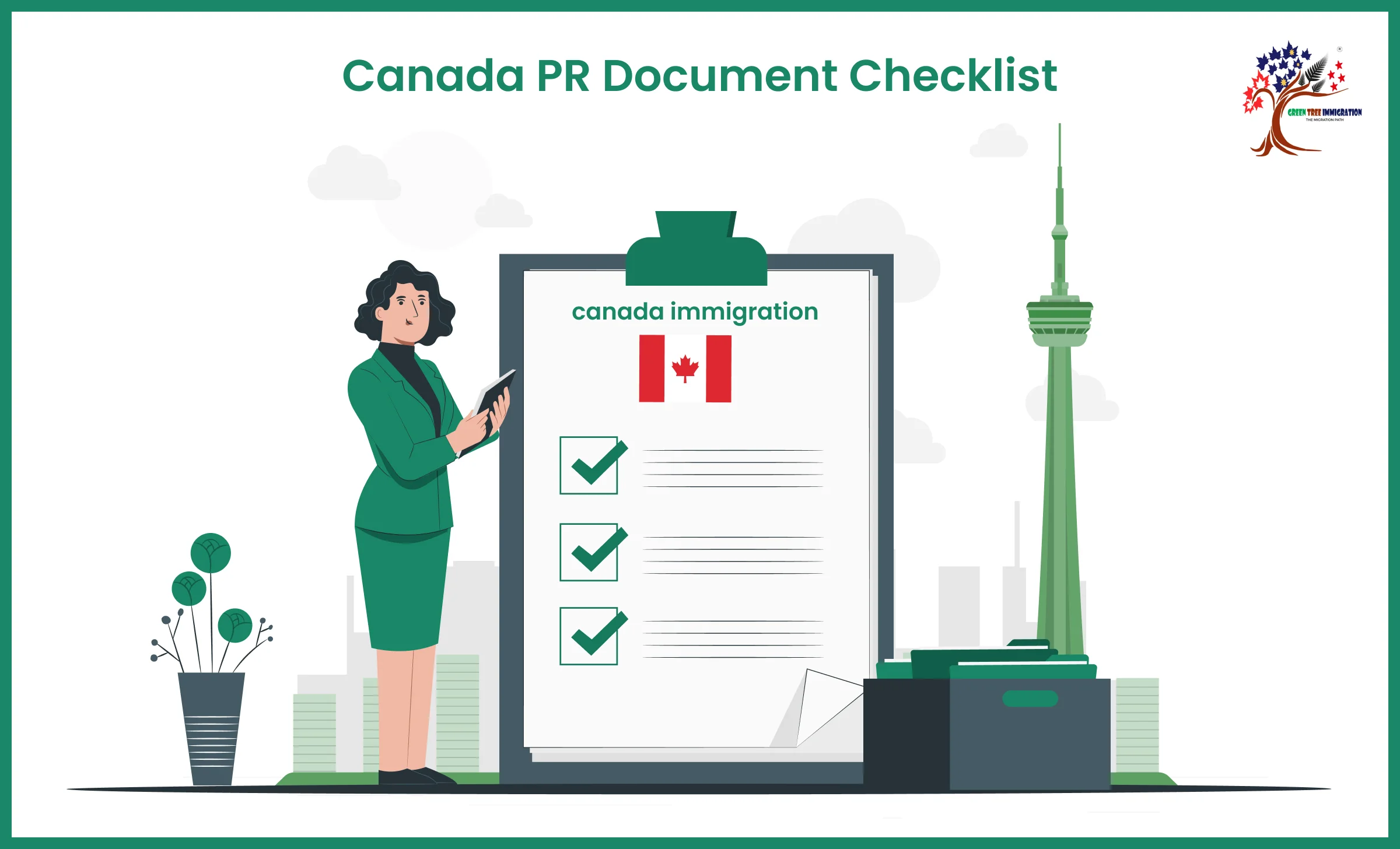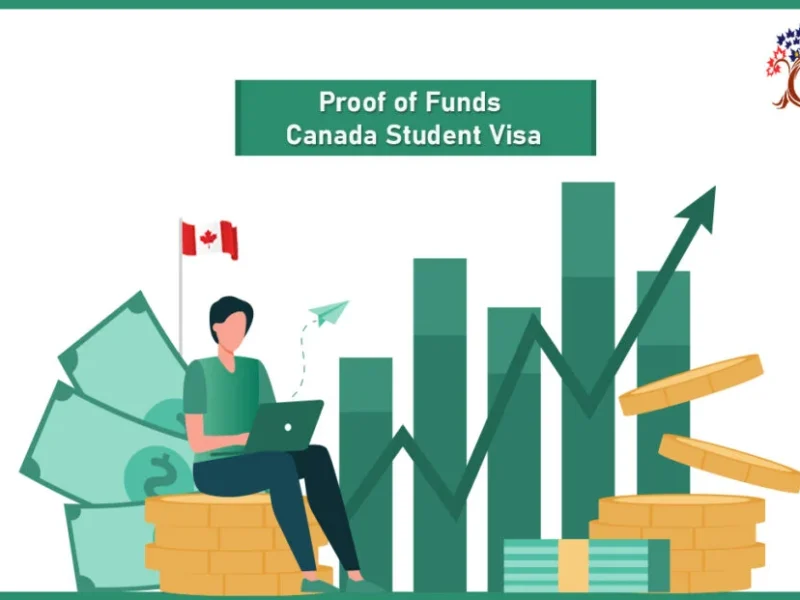Canada has long been considered one of the most welcoming and hospitable countries in the world, which is why it’s no surprise that it’s also one of the top choices for immigrants looking to start a new life. The process of immigrating to Canada can be challenging, but obtaining Permanent Resident (PR) status in the country can be life-changing. However, before applying for PR, it’s essential to know what is the list of documents required for Canada immigration. In this blog, let us look at a comprehensive list of the necessary documents required for Canada PR.
Checklist of documents required to apply for a Canada PR
The documents required for a Canada Permanent Residency (PR) application may vary depending on the specific immigration program you are applying through. However, here is a general Canada PR visa document checklist that is commonly required:
-
Proof of Identity
The applicant must submit proof of identity documents during the Canadian PR process for the Canadian officials to check the authenticity of the details provided by the clients.
-
Digital Photographs
To confirm the identity of the applicant, Citizenship and Immigration Canada (CIC) requires digital photos that meet the specifications for a permanent resident card. These must be passport-size and provided by the applicant.
-
Valid Passport
To travel from one country to another, a valid passport is crucial. Without one, immigrating from India or any other country to Canada will not be possible. As such, make sure you possess a valid passport before initiating the process. To ensure clarity, the photographs must depict the front face, neck, and shoulders in full detail.
-
Birth Certificate
As per requirements, a copy of your birth certificate must be attached as a mandatory document. This will serve as a means for the concerned authorities to verify your age. In the event that you are unable to provide a birth certificate, you may either apply for one or submit any other age-related document.
-
Work Experience Documents
If you have prior work experience, the applicant must provide the relevant experience letters from your previous employers. These experience letters should adhere to the guidelines provided by each organization. Applicants in high-demand occupations may have an increased likelihood of success.
-
Language Proficiency Test Result Form (TRF)
You must prove that you can speak and understand English or French, Canada’s two official languages. This can be achieved by taking any one of the approved language tests:
English
- International English Language Testing System (IELTS)
- Canadian English Language Proficiency Index Program (CELPIP).
French
- TEF Canada: Test d’évaluation de français
- TCF Canada: Test de connaissance du français
-
Educational Credential Assessment (ECA)
You must have your educational qualifications assessed by an approved authority to confirm their Canadian equivalency. There are seven different approved authorities under the Educational Credential Assessment (ECA). The authorities include:
- International Credential Assessment Service of Canada
- World Education Services
- Comparative Education Service – University of Toronto School of Continuing Studies
- International Qualifications Assessment Service (IQAS)
- International Credential Evaluation Service – British Columbia Institute of Technology
- Pharmacy Examining Board of Canada
- Medical Council of Canada
-
Proof Of Funds
You must provide evidence that you have sufficient funds to support yourself and your family members (if any) in Canada. This can include bank statements, employment records, and investment statements. Below is the proof of funds required to be presented to the Canadian officials along with your Canada PR visa application.
| 1 applicant | CAD 13,757 | 8,49,849 INR (approx.) |
| 2 applicants | CAD 17,127 | 10,58,033 INR (approx.) |
| 3 applicants | CAD 21,055 | 13,00,688 INR (approx.) |
-
Nomination Certificate from Canadian Province or Territory
Achieving a provincial nomination certificate enables you to seek Canadian permanent residence status. If you pursue a provincial stream that aligns with Express Entry, securing a nomination equals obtaining an added 600 Comprehensive Ranking System (CRS) points.
-
Medical Clearance Certificate (MCC)
You must undergo a medical exam by a panel physician approved by the Government of Canada to confirm that you don’t pose a health risk to the country. Even family members of the applicant, whether accompanying or not, must provide the medical examination certificates.
-
Police Clearance Certificate (PCC)
A police certificate is a document that attests to your clean criminal record or provides a copy of your criminal history. It is used to verify your eligibility for entry into Canada by identifying any potential inadmissibility issues. To be considered for permanent residency or citizenship in Canada, you and your accompanying family members must submit a police certificate. You must obtain a police clearance certificate from every country or territory where you have lived for more than six months since turning 18 years old.
-
Experience Letter(s) from previous employers (if applicable)
To receive points for work experience, you (and your spouse) must furnish a work experience letter that confirms your employment history. This document will need to be provided by your previous employer and should contain information supporting your work experience claims such as the job position held and the length of employment.
-
Marital Status Certificate (if applicable)
As a married individual, it is essential to include your marriage certificate in the document list for Canadian immigration. Moreover, your spouse’s education and qualifications can earn you additional points in the Comprehensive Ranking System (CRS), thereby improving your chances of successful immigration. Make sure to utilize your partner’s credentials to enhance your overall CRS experience and secure a bright future in Canada.
- If the applicant’s marital status is “married”, he or she must submit the marriage certificate.
- If the applicant’s marital status is “divorced”, he or she must submit the legal separation certificate and divorce certificate.
- If the applicant’s marital status is “widowed”, he or she must submit the legal separation document and death certificate.
- If the applicant’s marital status is “common-law”, he or she must submit a separate common-law union form.
-
Proof of Relations in Canada (if applicable)
The Proof of Relations in Canada document is an official record that confirms the existence of a familial or personal relationship between individuals who are either citizens or residents of Canada which can add an additional CRS score to your profile.
-
Employment Letter In Canada (if applicable)
It’s not mandatory to have a job offer letter from a Canadian employer to move to Canada from India or any other country. You have the freedom to immigrate with or without a job offer letter. However, having a valid job offer from any employer can earn you additional points in the CRS and may also give you an edge over other applicants. So, keep that in mind and make sure to include it in your mandatory document list if you have one!
Conclusion
In conclusion, immigrating to Canada is a life-changing experience, and obtaining PR status is an excellent way to secure your future. Make sure to prepare the above-mentioned documents correctly, and the application process will become smoother and more comfortable. We at GreenTree Immigration have a dedicated team of professionals who have filed over a thousand applications for Canada Permanent Residency and can make your process hassle-free. Contact us for a free consultation and get further insights about the documents and the PR process.



